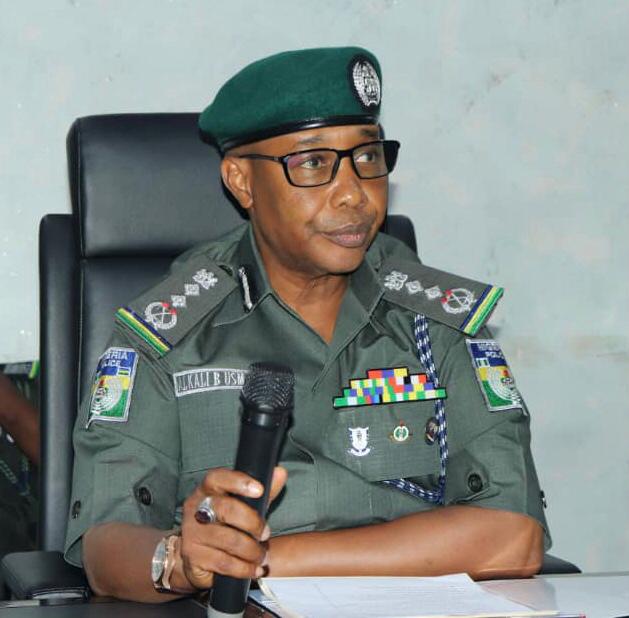By Chijioke Okoronkwo
The Inspector-General of Police (I-G), Mr Alkali Usman, says no fewer than 310, 973 personnel of the Nigeria Police will be deployed for the forthcoming elections.
Usman disclosed this on Thursday at the Presidential Villa, Abuja, while featuring in the 66th session of State House Briefing organised by the Presidential Communications Team.
He said that other security agencies including the Department of State Services (DSS), National Security and Civil Defence Corps (NSCDC), EFCC, the military among others would also deploy their personnel to complement the police.
According to him, the police have put in place operational and tactical measures to achieve a peaceful electioneering atmosphere in Nigeria.
“The perfection of our election security governance action plan is guided by two key principles.
“First is to police the election adversaries comprising criminal elements and misguided political elements that could pose political threats to the process.
“The second is to police peace loving citizens in a manner that will give them the confidence in the democratic system and encourage them to come out and exercise their franchise freely and without molestation.
“So, these are the two poles security provisions that we intend to do.’’
Usman said that the deployments had been planned to cover the air through the Police Air Wing which would be closely supported by the Nigerian Air Force.
He said that the inland waterways and riverine areas would be manned by the Nigeria Police Marine in collaboration with the Nigerian Navy.
The I-G said that the land would be covered by the special police units, conventional and other forces from the police and other security agencies including the military.
According to Usman, a National Election Security Threat Analysis has been conducted to identify potential threats.
“With the aid of our efficient and informed human operational and logistics deployment plan, we have undertaken an election security threat analysis which indentifies and prioritises possible threats to the electoral process in terms of locations and specific personalities and groups across the 36 states of the federation and the FCT.
“The force is also leveraging on the outcomes of similar exercises undertaken and shared with us by the Department of State Services and civil society organisations particularly, Cleen Foundation.
“ The operational plan of the force is the product of these initiatives.’’
The police boss said that INEC records indicated that there exited 176, 846 polling units in 8, 809 wards of the 36 states of the federation and FCT where the elections would be conducted.
He said that the police with the support of other security agencies had perfected plans to deploy in a coordinated and collaborative manner, to cover all these locations.
“The deployment will cover the National Collation Centre in Abuja as well as other collation centres across the states, the 774 Local Government Areas and the FCT.
“In view of the above, the Nigeria Police will deploy 310, 973 personnel for the election security operations.
“This will comprise conventional policemen, mobile policemen, the Special Counter-Terrorism Unit, the Special Forces, Intelligence Response Team and other sections of the Nigeria Police.
“The manpower requirement for this exercise will be complemented by the military and other security agencies.
“In this regard, aside the military and the DSS, other security agencies will contribute a total of 93, 495 personnel for the election security operations.
“These include the NSCDC which will deploy to the police, 51,000 personnel, the Federal Road Safety Corps, 21,000, the Nigerian Correctional Service, 11, 336, the National Drug Law Enforcement Agency, 9447, the Economic and Financial Crimes Commission, 350, totaling 404,106 to police the election.’’
Usman said that with the layout, a minimum of two personnel drawn from the listed agencies would be jointly deployed to man each of the polling units across the country.
He said that the armed personnel would secure the public space, INEC facilities, vulnerable locations, border areas as well as undertake armed escort duties for INEC personnel, materials and local and international observers.
“We also expect the military to complement the operations by providing armed protection to critical national assets; ensure that the enforcement of movements are curtailed by blocking the exit and entry points to various states, local governments among others,’’ he said.(NAN)





